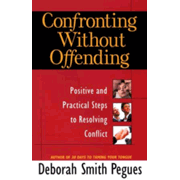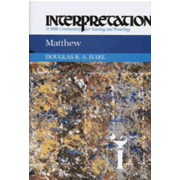FOR THE Fifteenth Sunday after Pentecost, we hear the early
church of Matthew laid out Christian behavior for adherents. The Gospel
According to Saint Matthew tells us precisely what was done internally as the early
churches formed. This text then, should stand as a basis for handling disputes
along our modern paths…
“If
your brother sins against you, go and tell him his fault, between you and him
alone. If he listens to you, you have gained your brother. But if he does not
listen, take one or two others along with you, that every word may be confirmed
by the evidence of two or three witnesses. If he refuses to listen to them,
tell it to the church; and if he refuses to listen even to the church, let him
be to you as a Gentile and a tax collector.
Truly, I say to you, whatever you bind on
earth shall be bound in heaven, and whatever you loose on earth shall be loosed
in heaven.
Again I say to you, if two of you agree on
earth about anything they ask, it will be done for them by my Father in heaven.
For where two or three are gathered in my name, there am I in the midst of
them.” (Matthew 18:15-20)
 |
Confronting Without Offending: Positive and Practical Steps to Resolving Conflict By Deborah Smith Pegues |
Going
to Court?
In today’s lesson, we find the church of
Matthew lays out a method of reconciliation. This was to be used whenever disagreements beset members or factions within the
Church. The statement as we read for this coming Sunday, however, bypasses that
which had been set in an earlier judicial stage for the disciples, as they functioned
in tension with the synagogue. The text which preceded this in Matthew revealed
to readers that the early Christians in Antioch were to view the apostolic founders
as "infants" before God. And thus being infants, warnings against harming them rolled
forth from Jesus. Using statements such as “Woe to the world for temptations to
sin!” (Matthew 18:7), Jesus emphatically warned any person or persons who would
dare attempt to sideline the evangelical course of the early Church.
Jesus drew stark word pictures of preferring self-mutilation rather than risk offending the “little ones”. So strong was the mindset of our Lord concerning this matter. One may properly envision eternal hellfire and brimstone falling upon any who would harm his apostles and their Christian witness.
When that
previous text is read, therefore, it set the stage for this discussion. I find
it somewhat profound that in my own denomination, some Lutherans use the
earlier verses while others study only the latter. An alternate reading recommended includes Matthew 18:1-20. Thus the latter text we study
here concerns only internal strife within the faithful
community. It seems to me that there existed a sticky band-aid tearing away of painfulness
in the early Church. We note that only Luke echoed any mention of dealing with
internal strife…
And
he (Jesus) said to his disciples, “Temptations to sin are sure to come; but woe
to him by whom they come! It would be better for him if a millstone were hung
round his neck and he were cast into the sea, than that he should cause one of
these little ones to sin. Take heed to yourselves; if your brother sins, rebuke
him, and if he repents, forgive him; and if he sins against you seven times in
the day, and turns to you seven times, and says, ‘I repent,’ you must forgive
him.” (Luke 17:1-3)
Being that we
find this importance of forgiveness only in the gospels of Matthew and Luke, but not in Mark,
we calculate that the source was the common “Q” document. “Q” is a writing which
has not yet been found and only exists in reconstruction. However, tradition
reinforces that this text is the thought, position and words of Jesus,
and not a later invention of the gospel writer’s community. We need only refer
to earlier Hebrew writings…
“You
shall not hate your brother in your heart, but you shall reason with your
neighbor, lest you bear sin because of him. You shall not take vengeance or
bear any grudge against the sons of your own people, but you shall love your
neighbor as yourself: I am the Lord.” (Leviticus 19:17-18)
But, in the realm of this Law the settled peoples
of Israel nation soon heard further legalisms. In this we note an absence of
any loving softness in final decision…
“A
single witness shall not prevail against a man for any crime or for any wrong
in connection with any offense that he has committed; only on the evidence of
two witnesses, or of three witnesses, shall a charge be sustained. If a
malicious witness rises against any man to accuse him of wrongdoing, then
both parties to the dispute shall appear before the Lord, before the priests and the judges who are in office in
those days; the judges shall inquire diligently, and if the witness is a false
witness and has accused his brother falsely, then you shall do to him as he had
meant to do to his brother; so you shall purge the evil from the midst of you.
And the rest shall hear, and fear, and shall never again commit any such evil
among you. Your eye shall not pity; it shall be life for life, eye for eye,
tooth for tooth, hand for hand, foot for foot.”
(Deuteronomy 19:15)
By this example, we see that the Law concerning
dispute was set forth harshly, and the emphasis on the gospel of loving one's
neighbor got historically lost in application. This initial forgiving priority became
rediscovered by Christians, however, as it was carried over by Jesus over into the
writings of the earlier Church. We see this when we examine writings that
predate Matthew’s witness only by several decades. For example, Saint Paul
wrote in his earliest letter to a church…
Brethren,
if a man is overtaken in any trespass, you who are spiritual should restore him
in a spirit of gentleness. Look to yourself, lest you too be tempted. Bear one
another’s burdens, and so fulfill the law of Christ. For if anyone thinks he is
something, when he is nothing, he deceives himself. But let each one test his
own work, and then his reason to boast will be in himself alone and not in his
neighbor. For each man will have to bear his own load. (Galatians 6:1-5)
That the apostles were thought of as founders, the first
little ones of the Church, we assume they went forward before the Law along with Gospel proclamation. We see that a proper balance of Law and forgiving Gospel
became a goal among the Christians. To provide further proof, we later see
that Paul stressed this new balance, by restoring for the vacillating synagogue
Christians the original intent found in Leviticus. He upbraided the new church which
was formed in Corinth…
When
one of you has a grievance against a brother, does he dare go to law before the
unrighteous instead of the saints? Do you not know that the saints will judge
the world? And if the world is to be judged by you, are you incompetent to try
trivial cases? Do you not know that we are to judge angels? How much more,
matters pertaining to this life! If then you have such cases, why do you lay
them before those who are least esteemed by the church? I say this to your
shame. Can it be that there is no man among you wise enough to decide between
members of the brotherhood, but brother goes to law against brother, and that
before unbelievers?
(1 Corinthians
6:1-6)
Thus we see that the issue of internal community
strife was not newly found in the church in Antioch. Therefore, it was not due to an
isolated incident addressed exclusively by the pen of Matthew. Wherever there
is sin… whenever there are disagreements… assuredly prescribed Christian guidelines
needed to be laid out before the people of God. Matthew did so. The
guidelines were to be done prayerfully. They
were not necessarily taken before the province or authorities of any outside governmental
power. The instructions provided in Matthew thus gave us procedural process within
a growing faith community and guaranteed that Jesus Christ, through the power
of the Holy Spirit would be with us in the midst of what may at times be
sinful, painful and gross unrest.
 |
The Courage to Stand: Facing Your Fear Without Losing Your Soul By Russell Moore |
Follow the Progression!
This promise was given to Matthew’s church and also to us, by
the gospel writer’s pen. We see that Matthew’s community was an infant church struggling in separatist
fashion with its parent synagogue… providing a path of Christian ministry into the
future. Looking in
retrospect, therefore, our modern Church is also called by the power of the
Holy Spirit to follow similar progression as outlined clearly. This is true whether
the sin and dissonance be personal, congregational, denominational or across
the breadth of the entire Church.
I noted when studying the original Greek
found in the Matthean witness, that “agreement” was very specifically flavored...
in that we should exist in “symphony” (In Greek = συμφωνησωσιν [sumphōnēsōsin]). We need remember
therefore, some very final and everlasting words to the Church spoken by Jesus. These are
recorded by the church of John. Written likely in the last decade of the first
century A.D. we read …
On
the evening of that day, the first day of the week, the doors being shut where
the disciples were, for fear of the Jews, Jesus came and stood among them and
said to them, “Peace be with you.” When he had said this, he showed them his
hands and his side. Then the disciples were glad when they saw the Lord. Jesus
said to them again, “Peace be with you. As the Father has sent me, even so I
send you.” And when he had said this, he breathed on them, and
said to them, “Receive the Holy Spirit. If you forgive the sins of any, they
are forgiven; if you retain the sins of any, they are retained.” (John 20:21-23)
From John then, we call attention specifically to the
refrain of peace that our Lord Jesus Christ gave to his disciples who were present.
As they were in the upper room, hiding like little children from the wrath of
parental Judaic anger, he said repeatedly, “Peace be with you.” (In Greek = Εἰρηνη ὑμιν [Eirēnē humin]). I contend that this statement was said as an actuality
for the infant churches since the Prince of Peace was already there. This
statement was also Law, however… a command in that the community of Matthew and others developed
guidelines for the children’s behavior. And finally, this statement is most
surely Gospel… for as the baptized children of God the good news is that
through Jesus Christ working through the Holy Spirit... we also may certainly work to have
lasting peace with one another. Consequently by the witness of Matthew, knowing that we fall
short, we sinners can yet gather at the table of the Lord knowing that the peace
existing beyond all understanding is already ours. Thanks be to God!
Please be invited to watch this video concerning matters discussed here...
May the Peace of God prosper Mutual Ministry!



No comments:
Post a Comment